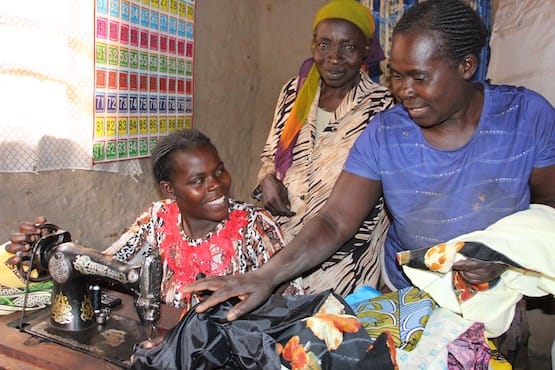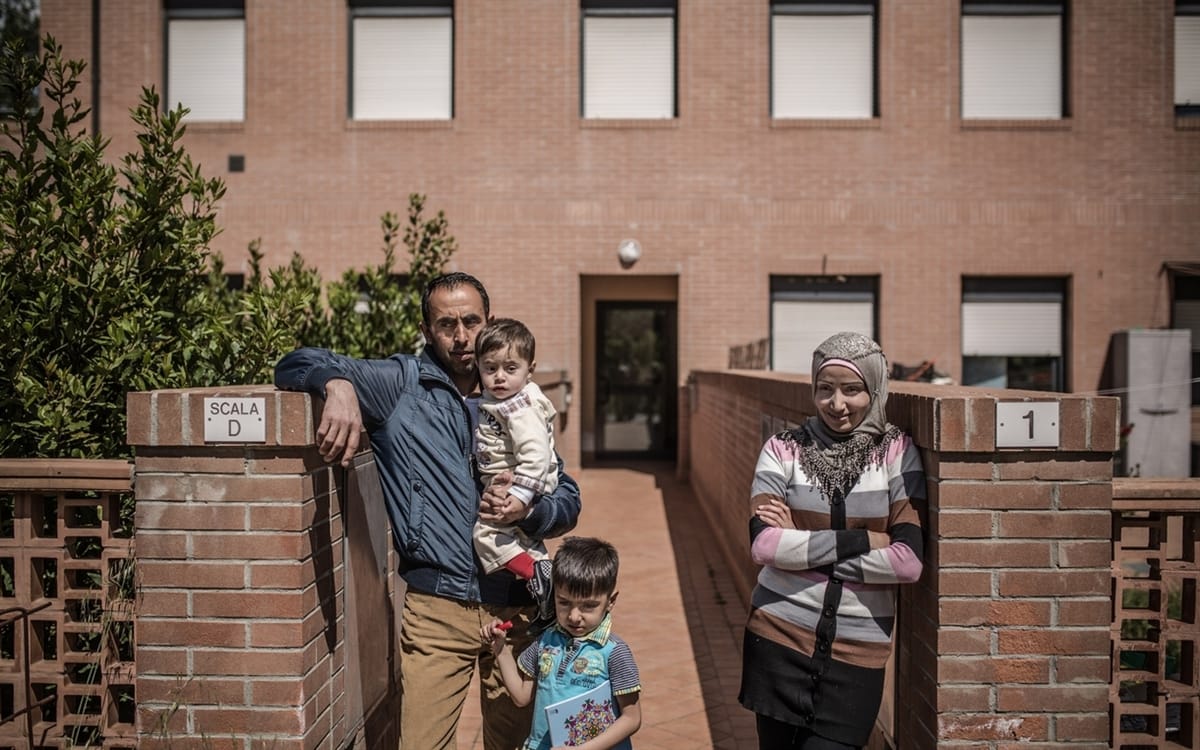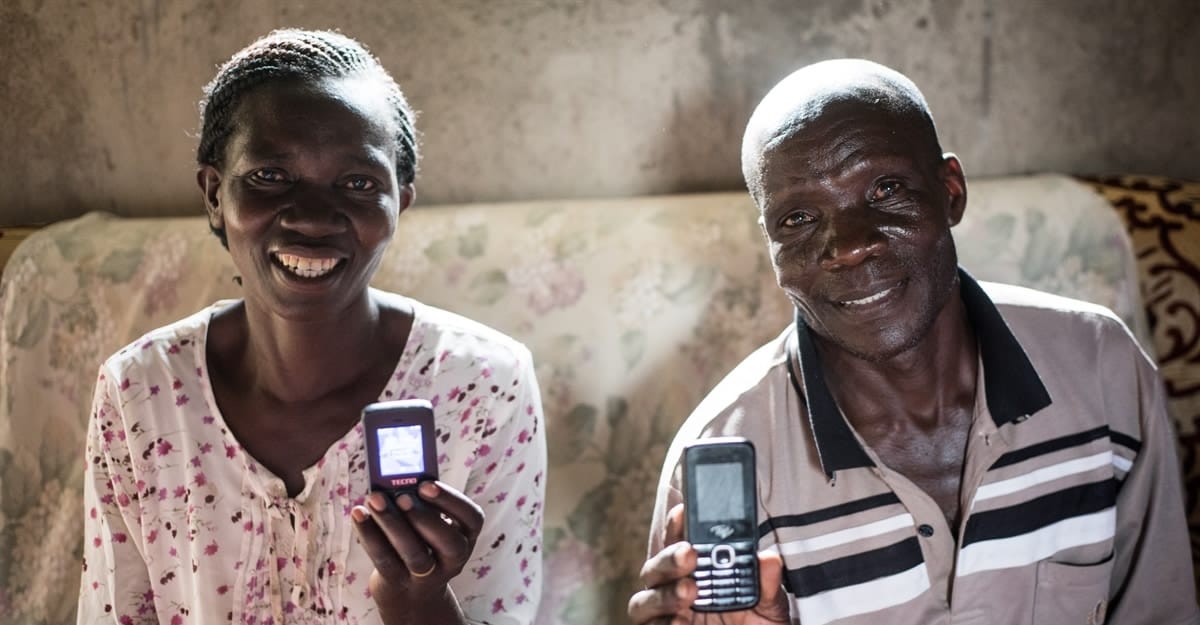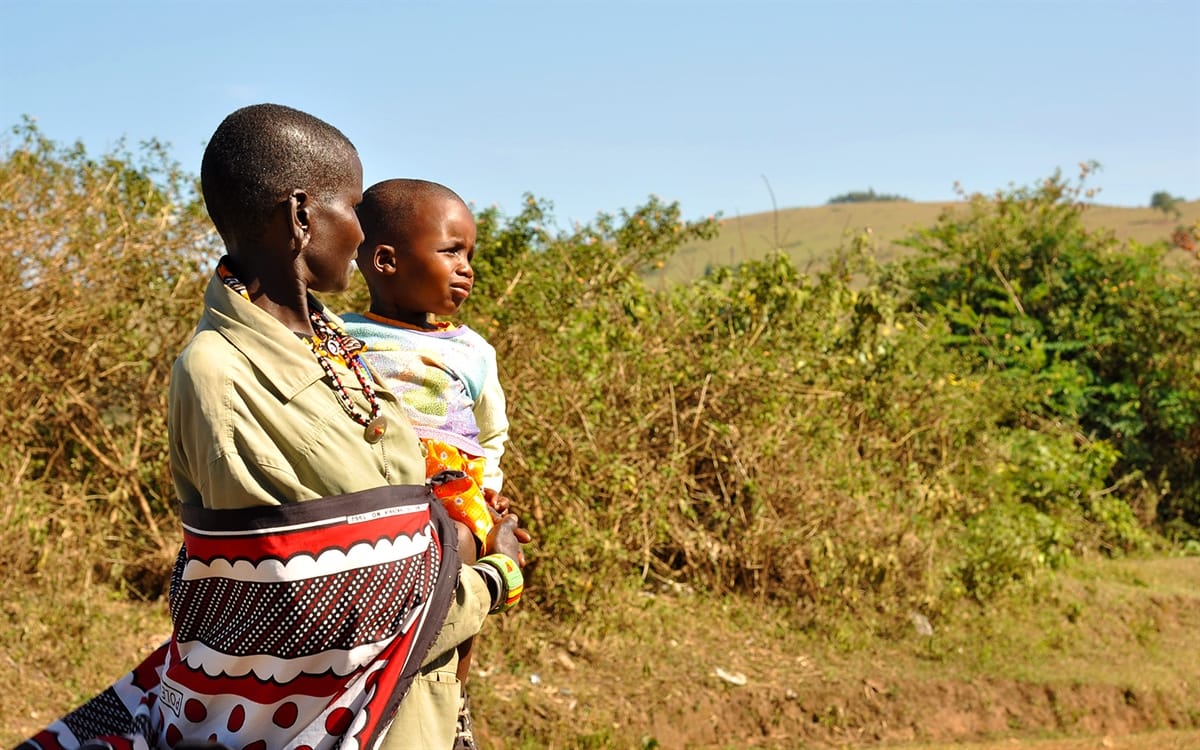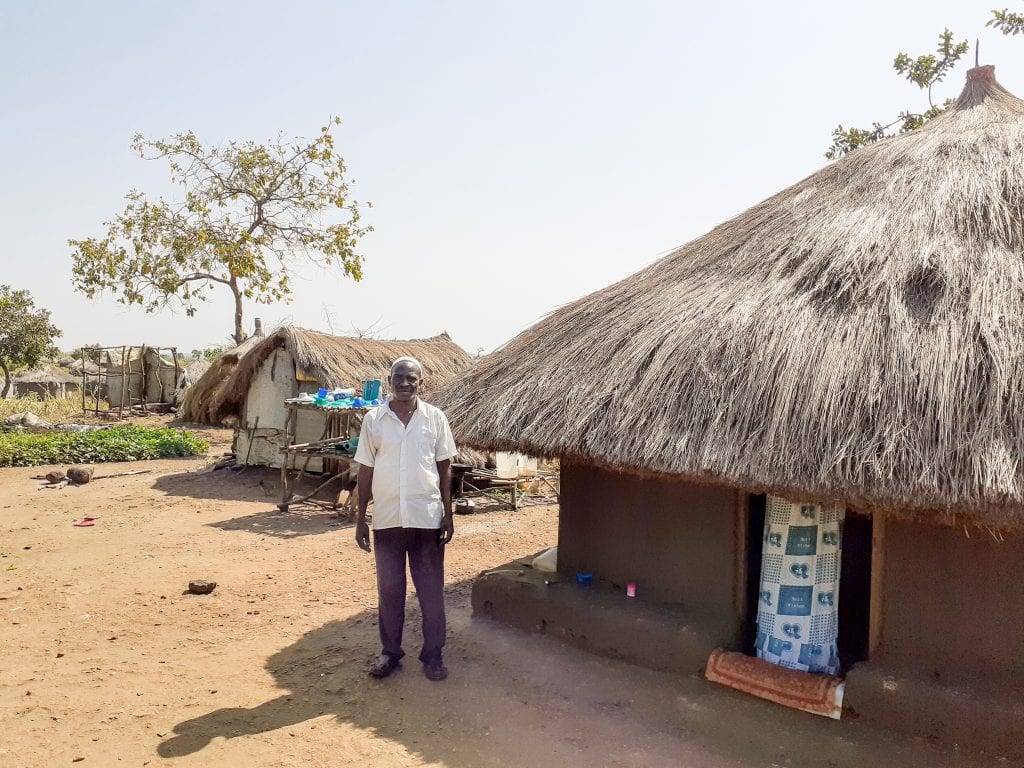by Hannah McCandless, Program Associate, Village Enterprise
About a year ago in Aduka Village, Uganda, Anna, Esther and Stephen received their first installment of seed capital from Village Enterprise. They used their $100 to purchase vegetables in a nearby trading center and sell them at a small markup in their rural village. Using their profits, they started a small snack kiosk selling chapati (flatbread) and later mandazi (traditional donuts). Since then they have used their earnings and the final $50 grant to diversify to other produce, and begun breeding goats and sheep to sell. They are now saving to purchase a motorbike to reduce their transportation costs.
Anna, Esther and Stephen are natural entrepreneurs.
Around the same time that Anna, Esther and Stephen launched their enterprise, Grace, Beatrice and Joseph in Nyakabale village were preparing to do the same. Grace, Beatrice and Joseph are rice farmers. Their parents were rice farmers, as were their grandparents before them. So what did Grace, Beatrice and Joseph do with their Village Enterprise seed capital? They planted rice. While they will likely need much more encouragement and guidance in order to grow their business and invest their new profits wisely, experience tells us that they, too, are likely to succeed in harnessing the power of entrepreneurship to transform their families’ lives.
UNLOCKING POTENTIAL, INSTILLING SKILLS
At Village Enterprise, we believe that entrepreneurship is not just for the naturally entrepreneurial. It is a skill like leadership or teamwork that can be fostered and learned. In rural East Africa, where little formal employment exists, sometimes starting a business is the only way to create an income. We seek to unlock the potential of those who are entrepreneurs by nature and instill the skills of entrepreneurship in those who are not.
Village Enterprise implements a cost-effective, group-based, one-year graduation program for rural Africans who live on less than $1.90 per day. To date, Village Enterprise has started over 39,000 businesses and trained over 156,000 new entrepreneurs. Approaches like these can ensure that the more than 40 percent of sub-Saharan Africans who live at the base of the pyramid can gain the opportunity to lift themselves out of extreme poverty.
Graduation programs are increasingly being recognized as a high-impact and sustainable approach to alleviating extreme poverty. By combining highly effective targeting with business creation through a cash grant, business and financial literacy training, ongoing mentoring, and access to savings groups, Village Enterprise provides participants with a sustainable path out of extreme poverty. Village Enterprise entrepreneurs are able to provide better nutrition for their families, send their children to school, improve their living conditions and, for the first time, build household savings.
What differentiates Village Enterprise is our group-based, entrepreneurship-oriented model. Village Enterprise starts three-person (rather than individual) businesses and delivers training through groups of 30. This makes the program uniquely cost effective at just over $650 per three-person business. Each business typically provides support for 20 people based on average family size in the areas in which we work. The flexible model is adaptable to diverse settings and environments and has been adopted by other organizations. For example, several years ago, Village Enterprise trained the Boma Project in its microenterprise model, which then tailored the program to meet the needs of ultra-poor women living in drought-threatened arid lands. Village Enterprise has also worked with conservation organizations (e.g. the Jane Goodall Institute, the Wildlife Conservation Society, and others) to adapt the program for regions near protected forests, and with FHI360 to adapt the program for youths as part of the USAID-funded Community Connector project in Uganda.
INCREASING PROFITS AND MITIGATING RISK
Creating income-generating activities is core to graduation. Training groups to run profitable small businesses is unique to the Village Enterprise model. We have found that disbursing grants to three-person groups both motivates and mitigates the risk of misuse as jointly-owned business owners hold each other accountable. Group-based businesses also allow for entrepreneurs to combine relevant skills and experience. Older participants may have more expertise. Younger members may have more formal education or may be more open to learning something new. When working in a group, a new enterprise benefits from the combination of these human assets.
Group businesses also provide greater flexibility and build social capital. Because over 70 percent of Village Enterprise entrepreneurs are women, running a group business tends to free up time for household responsibilities as well as flexibility and support in case of sickness or emergency. Although less research has been done on social capital than on other forms of capital, the data that does exist suggests that social capital has a positive impact on the success of female entrepreneurs. The Village Enterprise group-based approach builds in social capital. By linking entrepreneurs, the program establishes networks that lay the groundwork for increased economic activity within a community – providing financial, social and human capital that can drive value chain integration, diversification, cooperatives, scaling and more. All of these factors contribute to the long-term sustainability of the businesses.
THE POWER OF GROUP SAVINGS
Microenterprise development can effectively increase income. But increases in income alone do not necessarily make a household less vulnerable to financial disaster or better prepared to invest in the future. That’s why fostering a culture of savings and providing access to savings networks are requirements to building sustainable enterprises and improving overall well-being.

Village Enterprise mobilizes participants into 30-member business savings groups (BSGs), an adaptation of the Village Savings and Loan Association model. Members’ mandatory weekly savings are divided into two categories. Regular savings, shared out once per year, can be used for any purpose the household deems necessary, and are generally used to pay school fees or purchase productive assets. Emergency fund savings act as insurance for the group, and are available to cover costs when someone loses a family member or falls ill. Planning for the future and building long-term savings ensure that families do not fall back into extreme poverty. BSGs continue to meet and save after the one-year training and mentoring program ends.
SCALING THE IMPACT OF GRADUATION
A randomized controlled trial (RCT) published in Science magazine (May 2015) evaluated six graduation programs in varying contexts and found positive sustainable impact. Village Enterprise is currently wrapping up its own two-year independent RCT with Innovations for Poverty Action. The results, which will be published later this fall, show positive increases in consumption and assets one year after program completion. On the strength of the RCT’s evidence, Village Enterprise is working with Instiglio to launch a $5 million development impact bond, the first outcome-based funding instrument for poverty alleviation in sub-Saharan Africa.
TO MAKE IT IMPACTFUL, MAKE IT ACCESSIBLE
Entrepreneurship is powerful force for change. Anna, Esther and Stephen are natural proof of that. But it can also be powerful for participants like Grace, Beatrice and Joseph, who can adopt the skills and spirit of entrepreneurs. Programs that target the ultra-poor should encourage healthy risk-taking while offering a safety net in the case of early failure. By doing so, we can unlock the potential of both natural and necessity entrepreneurs and provide a sustainable path out of poverty.
